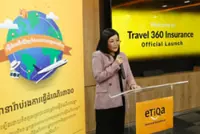ON Nov 25, 2022, Bank Negara finally published the long-awaited exposure draft on Digital Insurer and Takaful Operators (DITOs). This brings the country one step closer to achieve its national aspiration of becoming a regional leader in the digital economy.
Echoing DITO discussion paper released in January 2022, this exposure draft details the requirements needed for DITO application.





